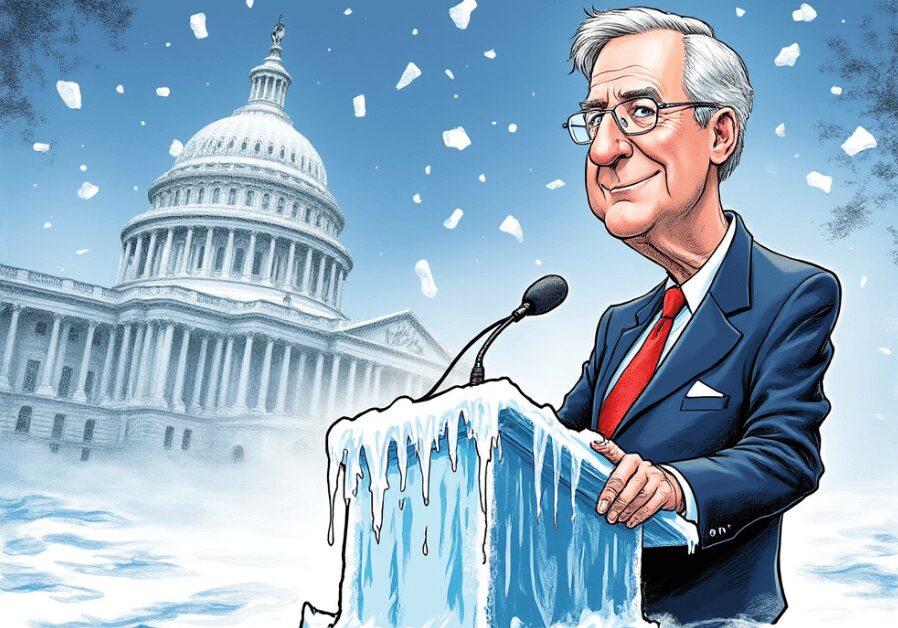Creative Proposals For Eliminating Conflicts of Interest
The issue of congressional pay has sparked heated debates in recent years. Lawmakers face scrutiny for profiting from stock market investments. Many call to ban stock trading by members of Congress. These calls stem from concerns about potential conflicts of interest. Critics believe lawmakers prioritize their portfolios over the public’s needs.

However, the conversation shouldn’t stop at banning stock trades—it’s time to ask deeper questions: What should Congressional pay look like, and how can it align with the public good rather than private gain? Below are several unconventional proposals to transform how Congress is compensated, eliminate conflicts of interest, and restore trust in governance.
Reimagining Congressional Pay: Bold Ideas for Reform
- Volunteer-Based Congress:
What if members of Congress were paid $0 and served as volunteers? This would reflect a sense of civic duty. Serving in Congress would not be a full-time career. Instead, it would be a temporary role alongside their professional lives. By limiting political theater and posturing, this approach could refocus Congress on governing rather than campaigning. - Performance-Linked Compensation:
Another proposal ties congressional pay to the success of the U.S. economy. Lawmakers could receive compensation based on metrics like the strength of the U.S. dollar or the stability of Treasury bonds.This system could incentivize policies that strengthen the country’s financial health rather than serving narrow, short-term interests. - Living Expenses Only:
A more modest approach would provide lawmakers with housing, meals, and basic necessities while they serve, without additional financial incentives. Stripping away excess pay could prevent Congress from being seen as a stepping stone for personal wealth-building. - Debt-for-Service Agreements:
Inspired by “360 deals” in the music industry, members of Congress could be paid generous upfront salaries or stipends but owe a significant portion back to the government if their service fails to meet legislative or economic benchmarks. This approach creates a direct accountability mechanism, forcing lawmakers to think twice before engaging in mismanagement or gridlock.
Why Stock Trading Bans Aren’t Enough




Banning stock trading among lawmakers has gained traction as a step toward reducing conflicts of interest, but common proposals fall short of addressing the root problem. Here’s why:
- Deferred Stock Sales:
Allowing members of Congress to hold stocks they own prior to taking office but only sell them after their term doesn’t address the inherent bias in policymaking. Even if lawmakers can’t sell during their tenure, they may still prioritize policies that benefit their holdings. - Mandatory Mutual Funds:
Forcing lawmakers to invest in mutual or hedge funds is another popular idea. However, these funds are part of the larger financial system that has long prioritized corporate growth and stock market inflation over the interests of small businesses and working Americans.
These “fixes” leave the structural incentives unchanged. Members of Congress remain disconnected from the struggles of small business owners, laborers, and average citizens while their portfolios benefit from bloated financial systems that perpetuate inequality.
Accountability Through Pay Reform
Beyond rethinking congressional pay, it’s essential to hold lawmakers accountable for their failures. The American public should have the ability to suspend Congressional salaries altogether when critical programs—like Social Security, disaster relief, or infrastructure funding—are left in limbo due to political gridlock.
This system powerfully reminds Congress that the people elect them to serve, not to grandstand or fuel partisan battles. Without real financial consequences for inaction, Congress breeds complacency and dysfunction.
The Bigger Picture: Redefining Congress’s Role
The debate over congressional pay isn’t just about dollars and cents—it’s about the role Congress plays in American life. Should it be a career path for personal wealth-building or a platform for public service? Should lawmakers spend their time governing or campaigning?
Radical ideas like volunteer service, performance-based pay, and accountability measures may seem extreme, but they open the door to conversations about systemic reform. Stock trading bans, while important, are only a starting point. True change requires us to rethink the incentives, priorities, and accountability mechanisms that shape Congress today.If we want lawmakers to act in the public’s best interest, we must redesign congressional pay to align with those values. By tying compensation to the success of the nation, eliminating conflicts of interest, and enforcing accountability, we can begin to rebuild trust in American governance.















